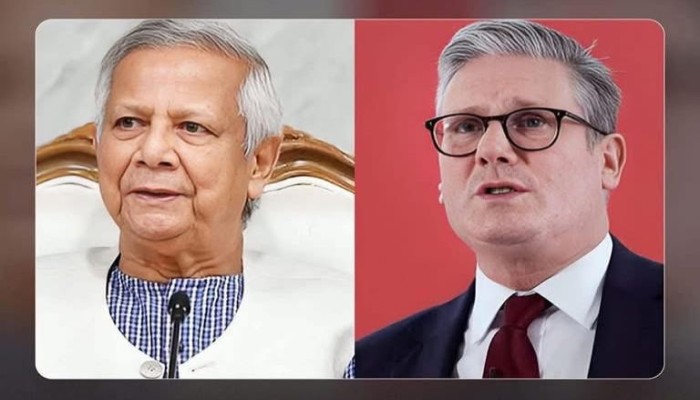
Why the UK Prime Minister Is Afraid to Meet Nobel Laureate Muhammad Yunus
Nazmul Istiak , LL.B, LL.M , BA (Hon's) , UK , Published: June 12, 2025, 5:06 pm

As a potential head of Bangladesh’s transitional government, Nobel Peace Prize laureate Muhammad Yunus is held in high regard worldwide. Renowned for his anti-corruption stance and humanitarian work, Yunus represents ethical governance at a time when Bangladesh faces deep political turmoil. Yet, the Prime Minister of the United Kingdom appears reluctant—perhaps even afraid—to meet him. Why?
The answer lies not only in Bangladeshi politics but also in the political dynamics within the UK itself.
The current British Prime Minister’s rise to power has been supported in part by lobbying groups and business interests closely tied to Bangladesh’s ruling Awami League. One of his closest political allies is Tulip Siddiq, a sitting Member of Parliament and niece of Prime Minister Sheikh Hasina. Despite her family being linked to allegations of corruption, money laundering, and political repression, Siddiq remains an active political figure in the UK.
On August 5, 2024, Bangladeshi state forces violently cracked down on peaceful demonstrators. Despite widespread documentation of these abuses, no Western government—including the UK—issued formal condemnation. Since then, multiple investigations have exposed overseas assets linked to the Awami League, including luxury properties in London and offshore accounts allegedly tied to Siddiq’s family.
Despite being elected by British citizens, Siddiq has repeatedly defended her aunt’s regime. Her continued presence in Parliament raises serious ethical questions about the UK’s stance on international human rights and political accountability.
Members of the Bangladeshi diaspora have voiced growing concern. Engineer Habibur Rahman, a Germany-based activist, stated:
“Britain is known as a land of justice and fairness, and it leads the Commonwealth as a moral example. So why is the Prime Minister refusing to support Dr. Muhammad Yunus in efforts to recover stolen public funds now sitting in British banks? This inaction not only undermines the UK’s commitment to transparency but risks damaging its diplomatic standing with other nations.”
A meeting between the UK Prime Minister and Muhammad Yunus would likely bring these issues to light—human rights abuses, the laundering of public funds into British banks, and criminal operations shielded under political influence. Such revelations would provoke intense media scrutiny and could destabilize the Prime Minister’s already shaky political position.
Recent history shows how quickly political power can shift in Britain:
-
Theresa May: 3 years, 12 days
-
Boris Johnson: 3 years, 45 days
-
Liz Truss: 50 days
-
Rishi Sunak: 1 year, 255 days
Now, the current Prime Minister stands at just over 340 days in office—facing mounting criticism and the risk of early departure.
He understands that sharing a stage with Muhammad Yunus would trigger uncomfortable global questions:
-
Why is Tulip Siddiq still in Parliament?
-
Why is Britain harboring enablers of the Awami League regime?
The Awami League is no longer a democratic institution—it has evolved into a violent, authoritarian network, systematically dismantling civil rights, misusing national resources, and committing severe human rights violations.
Bangladesh urgently needs a neutral and globally respected transitional government. Muhammad Yunus, with his integrity, international reputation, and commitment to justice, stands as the most qualified candidate to lead this path toward peaceful transition.